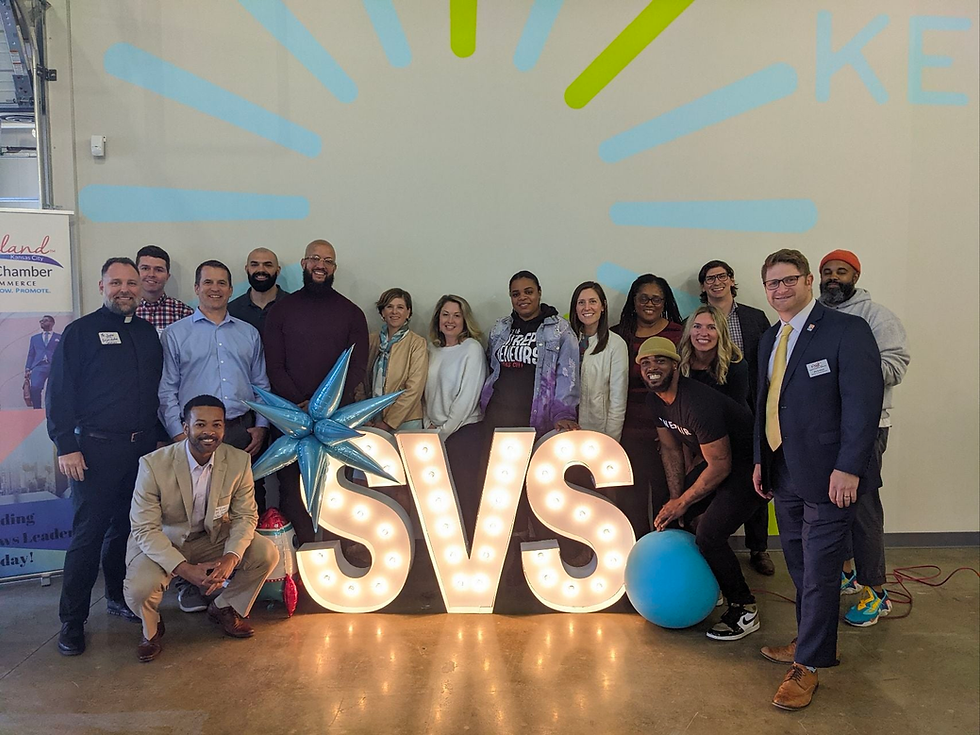Kansas City Civic Leaders Have 6 Months To Show Financial Support For Tech Hub Near 18th And Vine
- KCC

- Jan 28, 2019
- 3 min read
Published www.KCUR.com on January 28, 2019
An ambitious idea to spend at least $90 million building a high-tech block between Kansas City's East Crossroads neighborhood and the 18th and Vine District took its first concrete step when backers of the proposed Keystone Innovation District signed a predevelopment agreement in recent weeks.
A development entity established by J.E. Dunn Construction reached the agreement with the Kansas City Area Transportation Authority, which owns the block targeted for the proposed education, research and entrepreneurial center.
Brien Sterner, KCATA director for economic development, said the agreement gives backers of the plan, notably KC Rising, up to six months to raise funding for the endeavor.
“If at the end of six months, the project has the capacity to get funding with the support of KC Rising, we’ll craft a development agreement with either a long-term lease or purchase of the property,” Sterner said.
The Keystone Innovation District proposal was announced last October in a news release that described the concept but offered few tangible details about its development scope and how it would be accomplished.
One of its prime advocates is Kevin McGinnis, a former Sprint executive who founded the Sprint Accelerator, a co-working and startup space, at 210 W. 19th Terrace in 2013.
McGinnis, who could not be reached for comment, has major civic backers including KC Rising, an entity established to chart the region’s economic future; the Civic Council of Greater Kansas City, the Greater KC Chamber of Commerce and the KC Area Development Council.
In the statement released last fall, Bill Gautreaux, co-chair of KC Rising, described the innovation district concept as a “key strategy in helping us gain ground on our 30 peer regions.”
“The idea is to create a place where entrepreneurs, research institutions, students and corporations can collaborate privately and publicly to generate economic impact and workforce readiness,” he wrote.
Sterner said the KCATA agreement gives J.E. Dunn development rights to the two-acre site during the due diligence period. The property is the block bound by 17th and 18th streets, from Troost to Forest.
The tentative plan calls for a development valued at $90 million to $120 million that would be built in two phases.
“This is a heavy lift and it will take a lot of places stepping up to the plate about what’s good for the region,” Sterner said.
Emily Gallagher, vice president of communications at J.E. Dunn, said the predevelopment agreement is the first step in determining the feasibility of building an innovation district along the 18th Street corridor.
“We believe in the Keystone Innovation District and recognize the benefits our client is going to provide our community through this endeavor,” she said. “We are assisting the KCATA and Keystone in this exploration.
Besides boosting the region’s economic future, the Keystone Innovation District also would help connect the East Crossroads with the 18th & Vine Jazz District.
BNIM architecture, which has posted a preliminary design for a Keystone District building on its website, described the proposal as spurring development in the 18th Street corridor.
“It will create a vibrant, walkable connection between the currently disjointed areas of the Jazz and the Crossroads Arts Districts, presenting a critical opportunity to overcome decades of division across Troost Avenue caused by cultural and infrastructure barriers,” according to BNIM.
“Bringing together fragmented and finite resources to address the needs of the region would provide Kansas City a tremendous opportunity to not only catalyze economic growth but also continue its presence in the larger national conversation of burgeoning technology hubs.
“BNIM is thrilled and honored to be a part of the transformation.”
https://www.kcur.org/post/kansas-city-civic-leaders-have-6-months-show-financial-support-tech-hub-near-18th-and-vine#stream/0




Comments